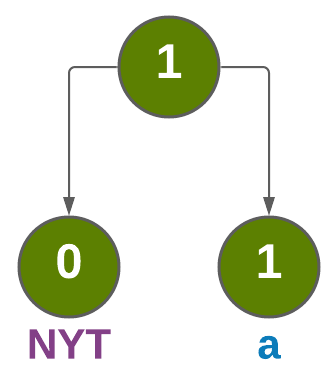Borůvka’s Algorithm
Borůvka’s Algorithm is a greedy algorithm published by Otakar Borůvka, a Czech mathematician best known for his work in graph theory. Its most famous application helps us find the minimum spanning tree in a graph.
Problem Description
- Input: An undirected, weighted and connected graph $G=(V,E)$ .
- Output: A minimal spanning tree (MST).
The Method
- We begin with individual components (each one represents a node).
- We initialize the minimum spanning tree $T$ as empty.
- While there is more than one component - we’ll find the minimum-weight edge that connects the component to any other component and does not making a circle in the graph.
- If the edge isn’t in $T$, we add it.
- Return $T$ which contains only one component (MST).
Time Complexity
One advantage that Borůvka’s algorithm has compared to the alternatives (e.g. Kruskal and Prim) is that it doesn’t need to presort the edges or maintain a priority queue in order to find the minimum spanning tree. Even though that doesn’t help its complexity, since it still passes the edges $log|E|$ times, it is a bit more simple to code. Therefore, the time complexity of this algorithm is $O(|E| \log |V|)$ .
Algorithm Pseudocode
Boruvka(G)
for each v∈V(G) do: // O(|V|)
MakeSet(v)
end-for
create Tree T ⇐ ∅
treeSize ⇐ 0
while treeSize < |V(G)|-1 do:
create Edge[|V(G)|] cheapest // init NULL
for each edge∈E(G) do:
root1 ⇐ FindSet(edge.v1)
root2 ⇐ FindSet(edge.v2)
if root1 ≠ root2 then:
if cheapest[root1] = NULL OR
OR edge.weight < cheapest[root1].weight then:
cheapest[root1] ⇐ edge
end-if
if cheapest[root2] = NULL OR
OR edge.weight < cheapest[root2].weight then:
cheapest[root2] ⇐ edge
end-if
end-if
end-for
for each v∈V(G) do:
if cheapest[v] ≠ NULL then:
v1 ⇐ cheapest[v].v1()
v2 ⇐ cheapest[v].v2()
if FindSet(v1) ≠ FindSet(v2) then:
treeSize ⇐ treeSize + 1
edge ⇐ new Edge(v1, v2, cheapest[v].weight)
T.add(edge)
Union(v1,v2)
end-if
end-if
end-for
end-while
return T
end-Boruvka
MakeSet(v): // O(1)
v.parent ⇐ v
end-MakeSet
FindSet(v): // O(log|V|)
if v = v.parent then:
return v.parent
else:
return FindSet(v.parent)
end-if
end-FindSet
Union(u,v): // O(log|V|)
uRoot ⇐ FindSet(u)
vRoot ⇐ FindSet(v)
uRoot.parent ⇐ vRoot
end-Union




Leave a comment